Sex, Love, and Gender: A Kantian Theory
Sex, Love, and Gender is the first volume to present a comprehensive philosophical theory that brings together all of Kant's practical philosophy — found across his works on ethics, justice, anthropology, history, and religion — and provides a critique of emotionally healthy and morally permissible sexual, loving, gendered being. By rethinking Kant's work on human nature and making space for sex, love, and gender within his moral accounts of freedom, the book shows how, despite his austere and even anti-sex, cisist, sexist, and heterosexist reputation, Kant's writings on happiness and virtue (Part I) and right (Part II) in fact yield fertile philosophical ground on which we can explore specific contemporary issues such as abortion, sexual orientation, sexual or gendered identity, marriage, trade in sexual services, and sex- or gender-based oppression. Indeed, Kant's philosophy provides us with resources to appreciate and value the diversity of human ways of loving and the existential importance of our embodied, social selves. Structured on a thematic basis, with introductions to assist those new to Kant's philosophy, this book will be a valuable resource for anyone who cares about these issues and wants to make sense of them.
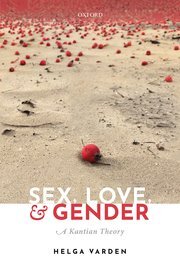
The Gender of Latinidad: Uses and Abuses of Hybridity
Latina/os have seen increased visibility in the media in the past several years, especially in feature-length films, network television programs, and various digital platforms. The Gender of Latinidad: Uses and Abuses of Hybridity explores Latina/o visibility—analyzing presence, production, and interpretation throughout various media. An important contribution to the emerging field of Latina/o Media Studies, this unique volume brings together political economy and cultural studies to consider the limitations of cultural politics and explore current issues relevant to Latina/o cultural inclusion.
Author Angharad N. Valdivia addresses the concept of hybridity and applies it to contemporary Latinidad, in which hybrid Latina/os lead hybrid lives and consume hybrid media. The text explores strategies for gendered visibility in a range of popular culture media, using the concept of hybridity to connect Latina/o Studies to Feminist Media Studies, Gender Studies, and Ethnic Studies. Throughout the text, the author discusses the inclusion Latina/o scholars and audiences seek and considers if such inclusion is even achievable. Offering intersectional exploration of Latinidad in mainstream media, this volume:
- Explores the trope of the spitfire in the context of popular media
- Brings Disney Studies into Latina/o Studies
- Discusses the dynamic inclusion of Latinidad in awards ceremonies
- Assesses the implicit utopias of Latina/o representation
- Presents the only major academic treatment of Charo
Presenting an original perspective on Latina/os in media, The Gender of Latinidad: Uses and Abuses of Hybridity is an ideal text for students and scholars in areas including Gender Studies, Ethnic Studies, and general Media and Feminist Media Studies.
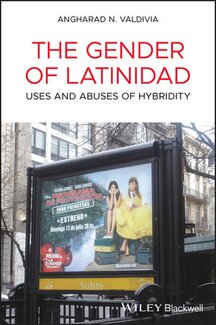
The Cambridge Companion to Queer Studies
This companion provides a guide to queer inquiry in literary and cultural studies. The essays represent new and emerging areas, including transgender studies, indigenous studies, disability studies, queer of color critique, performance studies, and studies of digital culture. Rather than being organized around a set of literary texts defined by a particular theme, literary movement, or demographic, this volume foregrounds a queer critical approach that moves across a wide array of literary traditions, genres, historical periods, national contexts, and media. This book traces the intellectual and political emergence of queer studies, addresses relevant critical debates in the field, provides an overview of queer approaches to genres, and explains how queer approaches have transformed understandings of key concepts in multiple fields.
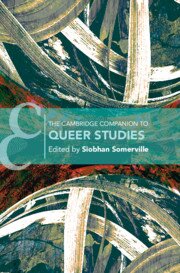
How to Interpret Literature: Critical Theory for Literary and Cultural Studies, 4th Edition
Offering a refreshing combination of accessibility and intellectual rigor, How to Interpret Literature: Critical Theory for Literary and Cultural Studies, Fourth Edition, presents an up-to-date, concise, and wide-ranging historicist survey of contemporary thinking in critical theory. The only book of its kind that thoroughly merges literary studies with cultural studies, this text provides a critical look at the major movements in literary studies from the 1930s to the present. It is the only up-to-date survey of literary theory that devotes extensive treatment to queer studies, postcolonial and race studies, environmental criticism, and disability studies. How to Interpret Literature is ideal as a stand-alone text or in conjunction with an anthology of primary readings, like Robert Dale Parker's Critical Theory: A Reader for Literary and Cultural Studies.
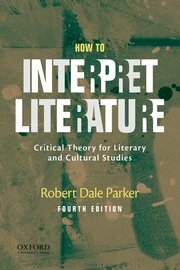
The Socialist Good Life: Desire, Development, and Standards of Living in Eastern Europe
What does the good life mean in a "backward" place? As communist regimes denigrated widespread unemployment and consumer excess in Western countries, socialist Eastern European states simultaneously legitimized their power through their apparent ability to satisfy consumers' needs. Moving beyond binaries of production and consumption, the essays collected here examine the lessons consumption studies can offer about ethnic and national identity and the role of economic expertise in shaping consumer behavior. From Polish VCRs to Ukrainian fashion boutiques, tropical fruits in the GDR to cinemas in Belgrade, The Socialist Good Life explores what consumption means in a worker state where communist ideology emphasizes collective needs over individual pleasures.
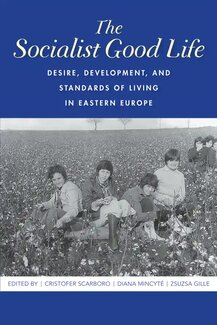
What Is a Public Education and Why We Need It: A Philosophical Inquiry into Self-Development, Cultural Commitment, and Public Engagement
The unique mission of a public education is to reproduce a civic public. For the most part this will not happen in a vacuum and requires specific institutions—the most prominent of which are the publicschools. Publicly supported schools have other functions as well. They socialize; train, produce a workforce and, hopefully, promote individual growth and autonomy. True, all of these functions may be carried on by private or religious schools as well. However, public schools should have the additional responsibility of reproducing a civic public for a diverse pluralistic society. The problem is that in the context of neoliberal ideology, where all the other educational functions are reduced to economic ones within a market context where competition (nation to nation, state to state, community to community, school to school, teacher to teacher, student to student) rules, the public function becomes less and less central and more and more difficult to carry out. This book suggests ways to change this by bring to idea of a true public education back into focus.
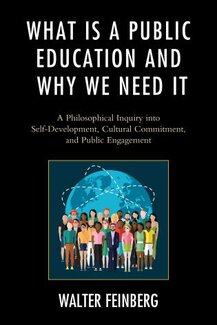
Forgotten Dreams: Revisiting Romanticism in the Cinema of Werner Herzog
Werner Herzog (b. 1942) is perhaps the most famous living German filmmaker, but his films have never been read in the context of German cultural history. And while there is a surfeit of film reviews, interviews, and scholarly articles on Herzog and his work, there are very few books devoted to his films, and none addressing his entire career to date. Until now.
Forgotten Dreams offers not only an analytical study of Herzog's films but also a new reading of Romanticism's impact beyond the nineteenth century. It argues that his films re-envision and help us better understand a critical stream in Romanticism, and places the films in conversation with other filmmakers, authors, and philosophers in order to illuminate that critical stream. The result is a lively reconnection with Romantic themes and convictions that have been partly forgotten in the midst of Germany's postwar rejection of much of Romantic thought, yet are still operative in German culture today. The film analyses will interest scholars of film, German Studies, and Romanticism as well as a broader public interested in Herzog's films and contemporary German cultural debates. The book will also appeal to those interested in the ongoing renegotiation - by Western and other cultures - of relationships between reason and passion, civilization and wild nature, knowledge and belief.
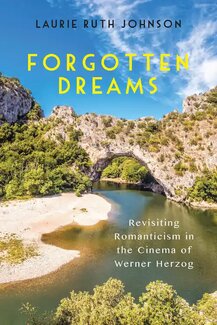
Casanova the Irresistible
His is a name synonymous with seduction. His was a life lived without limits. Giacomo Casanova left behind thousands of pages detailing his years among Europe's notable and noble. In Casanova the Irresistible, Philippe Sollers--prolific intellectual and revered visionary of the French avant-garde--proffers a lively reading of and guide to the famed libertine's sprawling memoir.
Armine Kotin Mortimer's translation of Sollers's reading tracks the alluring Venetian through the whole of his astounding and disreputable life. Eschewing myth, Sollers dares to present the plain realities of a man "simple, direct, courageous, cultivated, seductive, funny. A philosopher in action." The lovers are here, and the ruses and adventures. But Sollers also rescues Casanova the writer, a gifted composer of words who reigns as a titan of eighteenth-century literature. As always, Sollers seeks to shame society for its failure to recognize its failings. By admiring those of Casanova's admirable qualities present in himself, Sollers spurns bourgeois hypocrisy and cliché to affirm a jocund philosophy of life devoted to the twinned pursuits of pleasure and joy.
A masterful translation that captures Sollers's idiosyncratic style, Casanova the Irresistible escorts readers on a journey into the heads and hearts of two singular personalities.
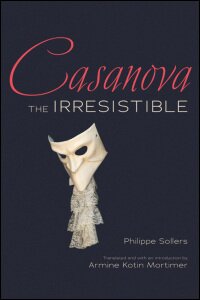
Rightlessness: Testimony and Redress in U.S. Prison Camps since World War II
In this bold book, A. Naomi Paik grapples with the history of U.S. prison camps that have confined people outside the boundaries of legal and civil rights. Removed from the social and political communities that would guarantee fundamental legal protections, these detainees are effectively rightless, stripped of the right even to have rights. Rightless people thus expose an essential paradox: while the United States purports to champion inalienable rights at home and internationally, it has built its global power in part by creating a regime of imprisonment that places certain populations perceived as threats beyond rights. The United States' status as the guardian of rights coincides with, indeed depends on, its creation of rightlessness.
Yet rightless people are not silent. Drawing from an expansive testimonial archive of legal proceedings, truth commission records, poetry, and experimental video, Paik shows how rightless people use their imprisonment to protest U.S. state violence. She examines demands for redress by Japanese Americans interned during World War II, testimonies of HIV-positive Haitian refugees detained at Guantánamo in the early 1990s, and appeals by Guantánamo’s enemy combatants from the War on Terror. In doing so, she reveals a powerful ongoing contest over the nature and meaning of the law, over civil liberties and global human rights, and over the power of the state in people's lives.
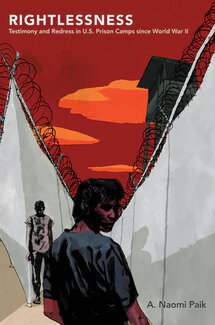
Biocultural Creatures: Toward a New Theory of the Human
In Biocultural Creatures, Samantha Frost brings feminist and political theory together with findings in the life sciences to recuperate the category of the human for politics. Challenging the idea of human exceptionalism as well as other theories of subjectivity that rest on a distinction between biology and culture, Frost proposes that humans are biocultural creatures who quite literally are cultured within the material, social, and symbolic worlds they inhabit. Through discussions about carbon, the functions of cell membranes, the activity of genes and proteins, the work of oxygen, and the passage of time, Frost recasts questions about the nature of matter, identity, and embodiment. In doing so, she elucidates the imbrication of the biological and cultural within the corporeal self. In remapping the relation of humans to their habitats and arriving at the idea that humans are biocultural creatures, Frost provides new theoretical resources for responding to political and environmental crises and for thinking about how to transform the ways we live.
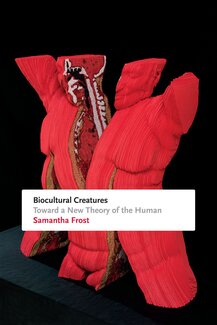
100 English Building
608 South Wright Street
Urbana, Illinois 61801